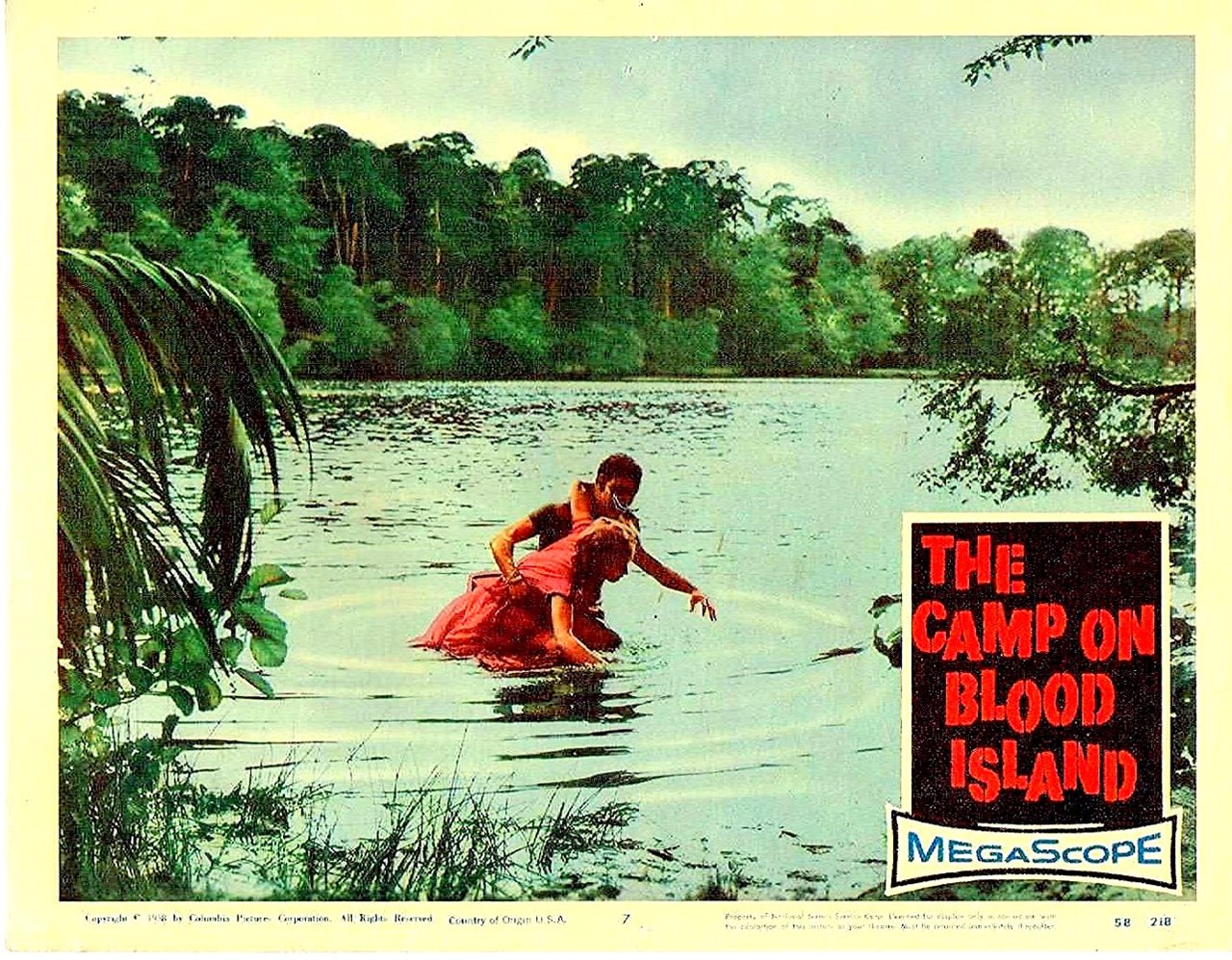

They were even encouraged to debate each other when serving as guests on late-night talk shows. Their appearances, coupled with their sometimes catty back-and-forth, often became fodder for comedy sketch programs. Almost a bigger draw for viewers than the actual criticisms was the constant on-air bickering between the polar opposite critics - one being short and rotund, the other tall and balding.

In 1982, Siskel and Ebert became so popular that they moved on to a syndicated, commercial version of the show with a similar format, called, "At the Movies." After a few years, the Emmy-nominated show switched to "Siskel & Ebert" (1986-1999), with their "thumbs up/thumbs down" reviewing style beginning to catch on and become part of the cultural lexicon. The show aired on the local WTTW Chicago station, and was picked up by PBS for national distribution in 1978, where it went on to garner the highest ratings for a weekly public television show.
Ebert camp blood island movie#
The following year, he began co-hosting a weekly movie review TV show, "Sneak Previews," along with Gene Siskel, the critic for rival newspaper, The Chicago Tribune. In 1975, his work landed him the honor of being the first film critic to earn the Pulitzer Prize for Criticism. Although the follow-up was a critical failure, both developed a cult following. Both films told the story of starlets coming into their own in show business the second film was considered a pastiche of the first, more than a sequel. Like many movie followers, Ebert eventually stuck his toe into the screenwriting pool, teaming up in 1970 with fabled flesh-peddling filmmaker Russ Meyer to co-write his only produced feature screenplay, "Beyond the Valley of the Dolls." Meyer had helmed the original camp classic, based on the novel by Jacqueline Susann. As his popularity grew with the high-profile position, Ebert became a powerful local voice for film studies and criticism, serving as a guest lecturer for the University of Chicago by teaching a night class on film. He was offered a job as film critic for The Chicago Sun-Times, one of the Windy City's two major newspapers - the other being The Chicago Tribune - a job he continued to hold through all the decades of his television notoriety. He was a candidate for an English doctorate when fate intervened, setting the course for his life from that point on. Upon earning his degree, he continued with a graduate study in English under a fellowship at the University of Cape Town. He was also a member of the Phi Delta Theta Fraternity. Ebert went on to college at the University of Illinois at Urbana-Champaign, and was editor of the student newspaper, The Daily Illini.

While Ebert was best known later on for his work in television, he was a consummate newsman, cultivating strong interests in all facets of journalism, beginning with newspapers and radio. He was already demonstrating outstanding talent in 1958, when he won the Illinois High School Association state speech championship in Radio Speaking, with his mock broadcast. During his senior year, he was co-editor of his school newspaper, The Echo. At Urbana High School, he was a sports writer for The News-Gazette in Champaign, IL. Raised in Urbana, IL, Ebert developed an interest early on in movies and writing, contributing to science-fiction fanzines in his teens.


 0 kommentar(er)
0 kommentar(er)
